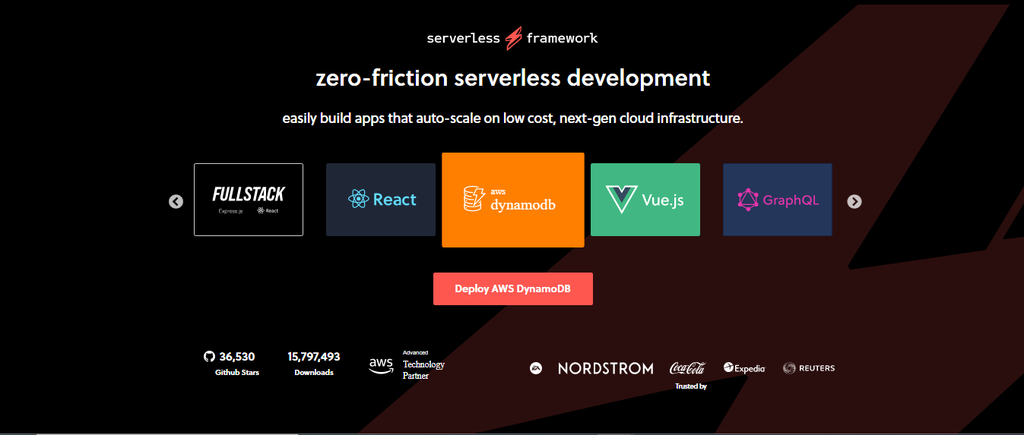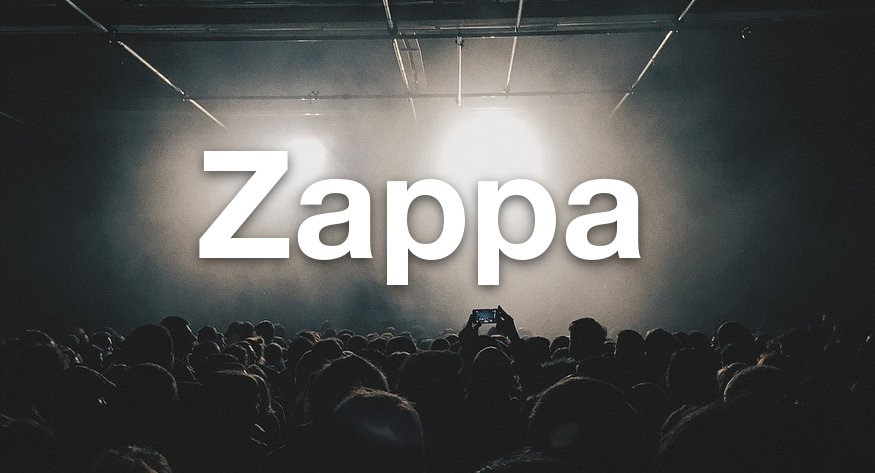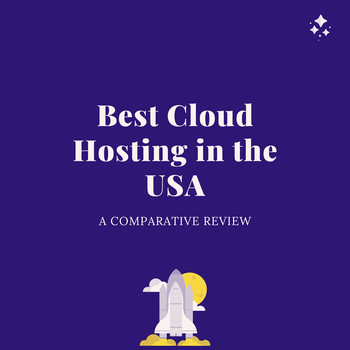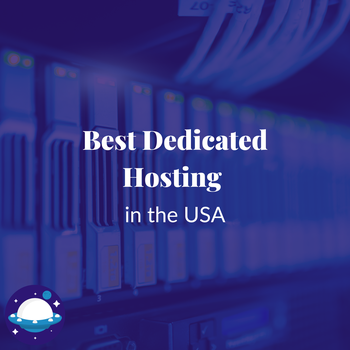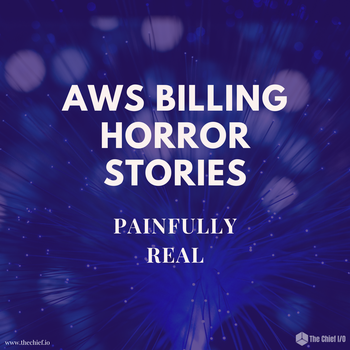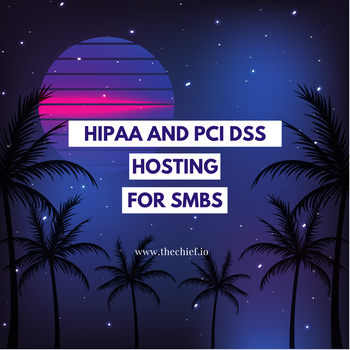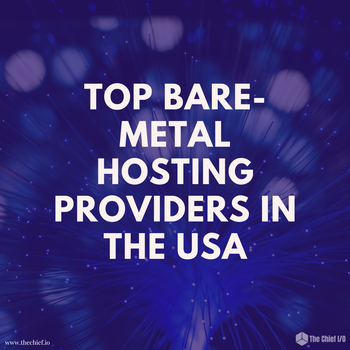Ten Serverless Frameworks to watch in 2021
in Serverless

There are a ton of serverless frameworks dedicated to making deployment to AWS Lambda and other serverless cloud functions easy and seamless.
Depending on your application needs and your preferred programming language, there are one or two frameworks that’ll satisfy your application requirements, allowing you to build, deploy, configure and manage the lifecycle of your serverless app.
You should read more on each framework and choose the one that best suits your need and use case.
Serverless Frameworks to Watch in 2021
Serverless computing is a fast-growing cloud technology that a lot of developers are beginning to exploit because of the flexibility and other interesting functions it offers.
Serverless helps developers ease the pain of manually deploying and managing applications, freeing up more time to spend creating exciting tech solutions.
But the name “serverless” tends to be misleading or sometimes misunderstood, so, what exactly is serverless?
What is Serverless?
Serverless computing is a way of deploying and running applications on cloud infrastructure, on a pay-per-use basis, and without having to maintain cloud infrastructure.
Contrary to its name, serverless just removes the need for companies, organizations, or developers to physically rent, buy or maintain a server.
What is a Serverless Framework?
A serverless framework is a tool, packed in a programming language, used to deploy cloud functions and serverless applications to cloud service providers.
There’s a difference between a serverless framework and serverless platforms.
These are the new serverless frameworks you should look out for in 2021
Serverless
Serverless is by far the most widely used multi-cloud Node.js serverless framework that helps you build different applications with serverless architecture and deploy to AWS Lambda, Azure Functions, Google CloudFunctions, and other serverless service providers.
Serverless offers a wide range of features including;
- Multi-cloud deployment: Serverless allows you to package and deploy applications to multiple serverless services including AWS, Azure, Google Cloud, and more.
- Open-source: Serverless is the most popular open-source serverless framework with over 38.9k stars, 4.6k forks, and 857 contributors on GitHub.
- Supports multiple languages: Serverless supports Node.js, Python, Java, Go, C#, Ruby, Swift, Kotlin, PHP, Scala, & F#
- Extensible via plugins: Serverless frameworks can be modified or extended via plugins.
Zappa (Python, AWS)
Zappa is a full-featured Python framework that makes it easy to build and deploy serverless, event-driven applications to AWS Lambda. It lets you seamlessly deploy Django, Flask, and other Python apps on AWS Lambda and API Gateway.
Some features of the Zappa framework includes;
- Open-source: It is an open-source command-line tool with over 11,700 stars and 1,200 forks on GitHub.
- Automated deployment: Zappa is packed with the ability to automatically packaged and deploy Flask or Django apps to an AWS serverless app. You can deploy, update or control an application with a single command.
- Continuous delivery: Instead of deploying your application directly, you can use Zappa to generate a CloudFormation template and zipped code package for your CI/CD deployment.
- Default IAM security role: Zappa creates a default identity and access management (IAM) policy that provides enough permission for immediate usage. You can however specify a custom IAM policy to suit your application requirement.
Chalice (Python, AWS)
AWS Chalice is an easy-to-use Flask-influenced framework that allows developers to configure and deploy serverless Python applications to AWS.
AWS Chalice offers several features including;
- Integrates with various AWS services: Chalice offers the functionality of integrating with other Amazon services including Amazon API Gateway, Amazon Amazon Simple Storage Service (S3), Amazon SNS, Simple Ques Service (SQS), and more.
- Generates a default IAM policy: By default, Chalice creates an IAM identity for easy use of the framework.
- Open-source: With over 7.6k stars, 780 Github forks, and about 128 contributors, Chalice is an open-source serverless framework, assuring its security and reliability.
After Serverless, Zappa and Chalice above that are the most widely used serverless frameworks and are built on python.
In the rest of this article, we’ll take a look at some other new rising frameworks to build your serverless applications in 2021, built on JavaScript, Java, and other major programming languages.
Architect (Node, AWS)
Architect is a sophisticated serverless framework that leverages Node.js and npm to create, deploy and manage AWS serverless infrastructure.
Architect provides interesting features, including;
- Infrastructure as Code: Architect takes an app.arc file and compiles your directive into a configured and provisioned AWS infrastructure.
- Local development workflow: Architect allows developers to write, debug, and test codes locally by simply running
mkdir testapp
cd testapp
arc initOn your terminal to create the app environment, then 'arc sandbox' to start the local server.
- Open-source: It is an open-source serverless framework with over 1.5k stars and 30 contributors on GitHub, making it secure and reliable.
- Built-in Security: Using Architect, you do not need to configure services, set up API Gateways, or fuss around with security as it by default handles everything by compiling your app into AWS Serverless Application Model (SAM) app before deploying with CloudFormation.
Claudia.js (Node, AWS)
Claudia.js is a serverless framework that enables developers to deploy Node.js projects to AWS Lambda and API Gateway easily with just a few lines of code.
Functions provided by Claudia.js include;
- Open-source:Claudia.js is an open-source JavaScript serverless framework with 3.6k stars, 251 forks, and about 33 contributors on GitHub.
- Short and Easy Commands: Claudia.js allows you to deploy, update, and manage your instances with a single command.
- Automatic configuration and deployment: Claudia.js automates the deployment and configuration of your Node.js and also works flawlessly with NPM packages.
- Extension Libraries: Claudia provides extension libraries that let users build chatbots and Web API endpoints quickly.
- Version management: Claudia.js offers an easy version management tool so you can work on multiple versions simultaneously.
- Small learning curve: Claudia.js is an easy-to-use framework. It only requires experience using JavaScript frameworks and learning the basic commands.
Flogo (Go, AWS)
Flogo is an Ultralight edge microservice framework written in Golang. It allows for easy deployment of applications to AWS Lambda using only Docker.
The following are some key functions offered by Flogo;
- Visual environment: Along with coding in Golang, Flogo provides the functionality of designing your application in a visual web UI interface.
- Event-driven: Flogo helps you create apps that only respond when there is a definitive call, trigger, or action, allowing you to save more.
- Open source: Flogo is open-source and can be customized while remaining secure and reliable.
- Flexible deployment: Programmed in Golang, Flogo allows you to deploy apps as lightweight serverless functions, containers, or static binaries on IoT edge devices.
DEEP (Node, AWS)
DEEP is a full-stack JavaScript serverless web framework that enables developers to build cloud-native applications using microservice architecture in a serverless approach. DEEP is part of Mitoc’s DEEP Marketplace, which is a software service that lets customers choose and deploy from lists of microservices.
Technologies and functionality DEEP offers includes;
- Open-source: The DEEP framework is a rising JavaScript open-source tool with 531 stars, 71 forks, and 12 contributors on GitHub.
- IAM and Cognito security: DEEP uses both the AWS IAM and Cognito to secure the
- Integration with various AWS services: DEEP integrates well with Amazon S3 and CloudFront in the frontend, DynamoDB database and AWS Lambda, API Gateway, and SNS in the backend.
- Production-like development environment.
DEEP makes it easy for developers to build, test and deploy serverless applications faster.
Lambada Framework (Java, AWS)
Lambada is a REST framework built in Java that uses JAX-RS API and lets you easily deploy serverless applications to AWS Lambda and API Gateway.
Lambada framework provides the following key features;
- Open Source:Lambada is an open-source tool with over 240 stars and 46 forks on Github.
- Support for common JAX-RS annotations: Supports Path, PathParam, GET, POST, PUT, DELETE, HEAD, and other common JAX-RS annotations.
- XML based configuration for Lambda function including VPC, custom execution role
Sparta (Go, AWS)
Like Flogo, Sparta is a serverless framework written in Go to build, test and deploy Golang web applications to AWS Lambda.
- Integration with various AWS services: Sparta enables seamless integration with all AWS lambda event sources including DynamoDB, Amazon S3, Amazon SNS, and Amazon SES.
- Default Security: Sparta defines default IAM security roles with limited access to minimize service attacks.
- Open-source:Sparta is an open-source framework with 681 stars and 52 forks on GitHub.
- API Gateways: It allows you to make your service HTTPS accessible by binding it to an API Gateway REST API during provisioning. Alternatively, expose a WebSocket API for an even more interactive experience
Spring Cloud Function (Java, AWS/Azure/OpenWhisk)
Spring Cloud Function is a sophisticated serverless framework used to write and deploy Java apps to multiple serverless solutions including AWS Lambda, Microsoft Azure, Apache OpenWhisk, and Google Cloud Platform.
- Multiple cloud adapter: Adapter for AWS, Azure, OpenWhisk, and other cloud platforms
- Supports multi-version deployment: Packages deploying functions as JAR files with an isolated classloader to support deployment in a single JVM.
- Various programming styles: reactive, imperative, or hybrid
- Open Source: An open-source project with 690 Github stars and 361 Github forks.
Get similar stories in your inbox weekly, for free
Share this story:
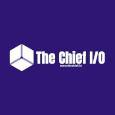
The Chief I/O
The team behind this website. We help IT leaders, decision-makers and IT professionals understand topics like Distributed Computing, AIOps & Cloud Native
Latest stories
Best Cloud Hosting in the USA
This article explores five notable cloud hosting offers in the USA in a detailed way.
Best Dedicated Hosting in the USA
In this article, we explore 5 of the best dedicated hosting providers in the USA: …
The best tools for bare metal automation that people actually use
Bare metal automation turns slow, error-prone server installs into repeatable, API-driven workflows by combining provisioning, …
HIPAA and PCI DSS Hosting for SMBs: How to Choose the Right Provider
HIPAA protects patient data; PCI DSS protects payment data. Many small and mid-sized businesses now …
The Rise of GPUOps: Where Infrastructure Meets Thermodynamics
GPUs used to be a line item. Now they're the heartbeat of modern infrastructure.
Top Bare-Metal Hosting Providers in the USA
In a cloud-first world, certain workloads still require full control over hardware. High-performance computing, latency-sensitive …
Top 8 Cloud GPU Providers for AI and Machine Learning
As AI and machine learning workloads grow in complexity and scale, the need for powerful, …
How ManageEngine Applications Manager Can Help Overcome Challenges In Kubernetes Monitoring
We tested ManageEngine Applications Manager to monitor different Kubernetes clusters. This post shares our review …
AIOps with Site24x7: Maximizing Efficiency at an Affordable Cost
In this post we'll dive deep into integrating AIOps in your business suing Site24x7 to …
A Review of Zoho ManageEngine
Zoho Corp., formerly known as AdventNet Inc., has established itself as a major player in …
